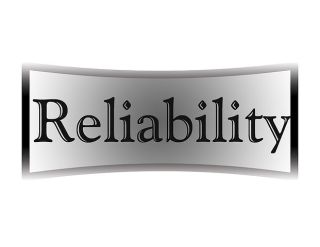Relationships
Do You Possess This Trait That Predicts Relationship Success?
Reliability is a key to successful relationships and careers.
Posted January 19, 2023 Reviewed by Vanessa Lancaster
Key points
- Reliability is consistency and the degree to which one’s expectations are met by experience.
- Reliability conveys predictability and safety. Safety is a core human need.
- Reliability, kindness, and respect make you unforgettable.

Research in interpersonal relationships has long told us that positive attitudes regarding the relationships within which you find yourself are powerful predictors of satisfaction and longevity within those relationships. Of that, there is no debate, but what are the foundations of such positive attitudes? What can you do to enhance the way you are perceived in personal and professional relationships? Reliability may be the key.
Harvard psychologist David McClelland, based on Henry Murray's work, frequently asserted that need gratification was the key to fostering and maintaining positive relationships. In fact, McClelland developed an entire empirically supported framework for understanding human needs. While human needs are multi-dimensional, one need stands out as important and transcendent of other needs. That need is predictability. Predictability is based on reliability. How reliable are you?
What is reliability?
Reliability may be considered as consistency and the degree to which one’s expectations are met by experience. Interpersonally, reliability shows up when you say you will and do what you promise. It’s remembering promises do not have expiration dates. Reliability is the glue that seals successful relationships. Books on topics ranging from loving relationships to business partnerships and even leadership all tout the importance of reliability.
Why is reliability important?
Reliability conveys dependability and even conscientiousness. Reliability communicates maturity, predictability, and trustworthiness. People who act reliably acknowledge a sense of duty. Tom Brokaw’s New York Times' best-selling book The Greatest Generation made the point that one thing which made the children of the Great Depression stand out from other generations was their acknowledged sense of duty to others. In his final analysis, reliability conveys safety. An essential revelation has been that high reliability may be more important than high performance.
On the other hand, a lack of reliability can engender perceptions of self-centeredness, flightiness, the inability to focus, superficiality, and perhaps even deceptiveness and dishonesty. In short, people who are unreliable may be viewed as “unsafe.”
A lack of reliability is to be defended against in the minds of many. Violated expectations (a lack of predictability and reliability) are believed to be at the root of an anxious moment. Many people are risk-averse, so they will be reluctant to trust an unreliable person with increasing responsibility. As such, unreliability can be a relationship and career-ender.
How to be Perceived as Reliable
The quest to be perceived as a reliable person is not difficult. Here are some simple tips that can make that quest easier.
- Show up when and where you say you will.
- Deliver what you promise. When possible, under-promise and over-deliver. Remember, promises do not have expiration dates.
- Try not to speak negatively about people when they are not present. They will always learn about the conversation and never forget it.
- Never betray the trust of another person. The pain of betrayal lasts a lifetime.
- Remember, criticism alone serves no useful purpose. If you must criticize, provide constructive suggestions as well. Criticize in private when possible.
- Avoid needless risk-taking when adverse consequences can be devastating.
- Never make a joke out of someone else’s misfortune. Never make another person the focus of a joke or a prank. Humiliation is seared into one's memory.
- Take responsibility for your actions. When you make a mistake, be the first to point it out. The discovery of attempts at concealment usually yields more severe consequences than the act you are trying to conceal.
- Follow a moral compass. Be honest with people. It’s far easier than trying to remember half-truths or efforts at deception.
- Reliability, kindness, and respect make you unforgettable.
© 2023, George S. Everly, Jr., PhD
References
Brokaw, T. (1998). The Greatest Generation. NY: Random House.


